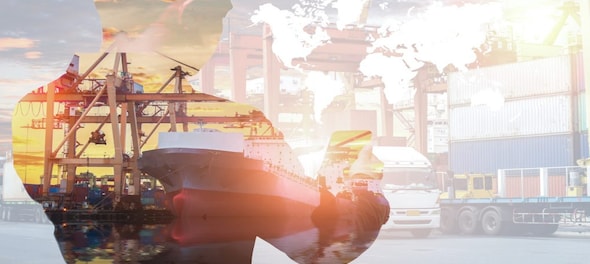
The global supply chain crisis continues to ravage economies and the latest threat comes from retailers themselves as they engage in activities like over-ordering, overstocking, and placing orders earlier than usual, further worsening the supply chain deadlock.
"Suddenly, retailers and manufactures are overordering because of these supply chain issues, and that's just leading to essentially an even worse scenario," Jonathan Savoir of the supply chain technology firm Quincus told CNBC.
Over a year and a half after the world became a victim of a virus pandemic, major economies, including India have controlled the rising infections with vaccines. But the upended global supply chains have found no dose so far. In fact, the situation is getting worse as economies rebound.
Adding fuel to the fire is fuel, literally. An energy crunch is attempting to disable the economy while it is rebounding from the pandemic. There is a power crunch in China due to coal and in Europe due to natural gas. Their effect is spilling over to the crude oil, which is rising to multi-year highs, further adding to the energy crunch.
What is the big deal with overstocking?
On a small level, stocking and ordering too much might not make a difference. But collective overstocking by retailers might create a bullwhip effect in the economy. Meaning, any small change in demand by retailers can cause very large movements in the demand to wholesalers, distributors, and manufacturers. In this entire supply chain line, the initial level -- the raw materials -- feel the biggest impact, Savoir said.
RBI Wealth Management, an economic research firm, had also underlined similar issues in a note. It had said as orders are being placed earlier than normal as retailers know of the supply chain problems. This is "lengthening the queue and creating a vicious cycle."
Impacting global growth
The crisis is expected to impede global economic recovery. The International Monetary Fund (IMF) cut its global growth forecasts and cited supply chain disruptions as one of the factors.
The fund expects the global economy to grow by 5.9 percent this year, 0.1 percentage points lower than its earlier estimate. While the revision looks modest, it masks large downgrades for some low-income countries, it said.
"The outlook for the low-income developing country group has darkened considerably due to worsening pandemic dynamics. The downgrade also reflects more difficult near-term prospects for the advanced economy group, in part due to supply disruptions," IMF said.
How is it affecting us?
Supply chain disruptions are messing up the timelines of product delivery. The prices of various commodities like coffee, crude oil, gas, to name a few, have been rising over the past few months.
In India, wholesale price-based inflation rose 10.66 percent in September from a year ago. It remained in double digits, for the sixth consecutive month. In September 2020, it was only 1.32 percent.
"The high rate of inflation in September 2021 is primarily due to rise in prices of mineral oils, basic metals, non-food articles, food products, crude petroleum & natural gas, chemicals, and chemical products etc. as compared the corresponding month of the previous year," the Commerce Ministry had said in a statement.
How did the supply chain disruptions come to be?
The months we spent at home cheering for frontline workers, apparently are supply chains needed cheering too. Meaning, when we were into lockdown, consumer demand plummeted and economic activity reduced.
But as lockdowns were lifted, the demand skyrocketed. And while industrial hubs had begun functioning, they faced issues due to labour shortage and supply chain disruptions. But the supply chains, that were sitting empty during lockdown could not take the sudden demand. And they are still struggling to manage the load, hit by roadblocks one after the other -- from container shortage to port closures, to floods.
This led to a global supply chain crisis, impacting everything -- from the food we eat to the cars we drive -- leading to what The Economist has termed as 'the shortage economy'.
(Edited by : Abhishek Jha)
Check out our in-depth Market Coverage, Business News & get real-time Stock Market Updates on CNBC-TV18. Also, Watch our channels CNBC-TV18, CNBC Awaaz and CNBC Bajar Live on-the-go!


Mark Mobius reveals how markets will react if NDA wins 400+ Lok Sabha seats
May 15, 2024 8:09 PM
Wine shops and bars to remain shut for 4 days in Mumbai in 4 weeks, check details
May 15, 2024 7:52 PM
INDIA bloc will win majority seats in Bihar, says Tejashwi Yadav
May 15, 2024 4:20 PM

